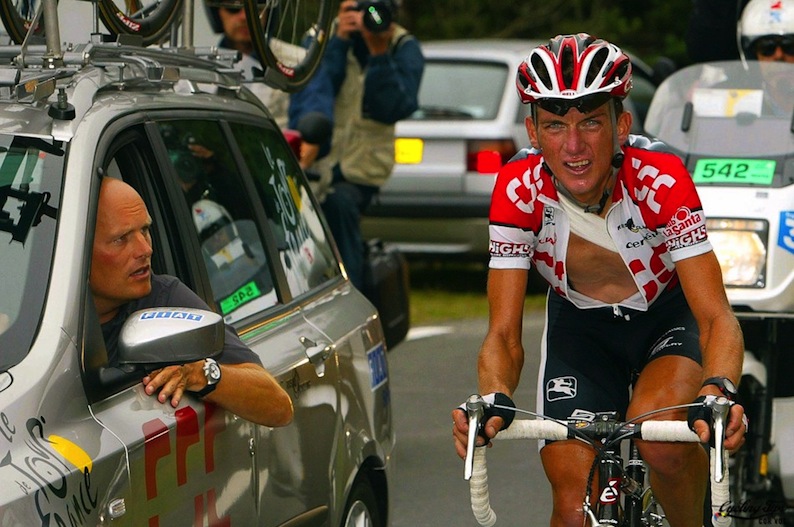The Secret Race is Tyler Hamilton’s account of what went on throughout his progression as a professional cyclist and what it was like to ride in the early 2000′s with USPS, CSC-Tiskali, and Phonak. I wouldn’t say that it’s vindictive against Armstrong or anyone else, but it certainly doesn’t paint Armstrong in a positive light. It’s a fascinating story in its own right, with tales corruption, cheating, lying, intimidation, humanity, ethics, and extreme ups and downs. I’ll be surprised if this isn’t made into a Hollywood feature film in the next three years.
What shocked me most was the level of detail that Hamilton’s story went into. I find it hard to believe that specifics like this could be made up. Do I believe every word of it? Not necessarily, but I believe that what Hamilton describes in the context of his doping practices is true. It’s consistant with many other books, reports, and firsthand accounts that I’ve heard. The book has an air of regret and relief, but the timing of its release is so well calculated it makes it hard to know if Hamilton is trying to cash in on a good opportunity, or if he’s doing what he thinks is right.
The most disturbing part of the book was when the stories of blood transfusions began. The lengths, expenses and risk that the riders and staff would go to in order to ensure the transfusions happened at the critical times was astonishing. These procedures didn’t happen in medical clinics, they happened with blood bags taped to the walls inside team buses and hotel rooms. At one point Hamilton described a botched transfusion where he was urinating the dead blood cells that he just infused. The most troubling thing is that many of the people who allegedly took part in these practices are still running the sport today. It terrifies me to think that some of the youngsters who are headed towards big things in professional cycling may be stepping into this world.
The one question that remains unanswered in the book is with regards to the current state of Tyler Hamilton’s health. I’m genuinely curious about what years of substance abuse (EPO, testosterone, blood transfusions, cortisol, etc) does to an athlete’s longterm well-being. Perhaps Tyler is still too young to know the full extent of the damages (if any). It’s well known that these doping procedures have serious short term health risks (i.e dying), but it would certainly be interesting to understand the long term risks after the drug use has stopped.
Assuming that what is said in the book is true, it’s troubling to know that systematic doping like this still took place until only a few years ago. After the Festina Affair we thought things would change and they didn’t. Lance Armstrong’s comeback signalled a new era of cycling, and it didn’t (it was all about high cadence, right?). Operación Puerto surely cleaned out the cheaters, but it didn’t. Is the few years between now and then enough time for the culture to have changed? Surely this can’t still be going on, could it? Does SKY’s Tour de France victory really a signal a new era in clean cycling?
The USADA has stripped Armstrong of his seven Tour de France titles and we are waiting to see if the UCI will uphold that decision. We’re still in the middle of this real-life drama which which is why it’s such a fascinating time to read this book which is not yet complete. Sources tell me there are a number of riders who have testified in the case who about to go public and things are about to get very interesting for Lance Armstrong.













